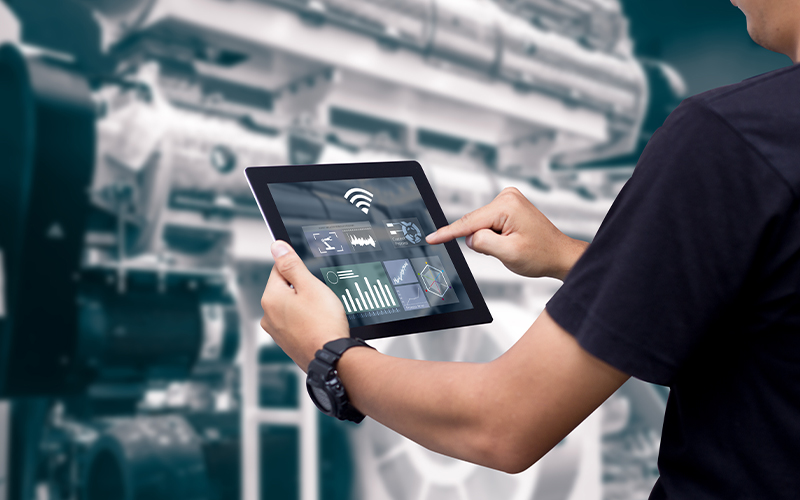Healthcare
The benefits and applications of AI in healthcare
The healthcare industry is data intensive, and the ability to analyse this data is the key to saving lives. This is where artificial intelligence (AI) gains significance as it can analyse large data sets for predictive analysis. AI in healthcare is booming and is set to grow at an annual rate of 48% by 2023. From predicting life-threatening ailments to drug discovery, AI can eliminate human error and save time and costs for healthcare institutions and patients. Medical professionals can identify a patient’s healthcare needs and provide relevant solutions faster and more accurately.
The benefits of AI in healthcare and medicine
Integrating AI with healthcare comes with a range of benefits, including task automation, personalized healthcare, and big data analysis for better and faster results at lower costs.
- Administrative tasks take up 30% of healthcare costs. AI can isolate and automate these tasks, including pre-authorising insurance, following up on unpaid bills, and maintaining patient records. This eases the workload of the staff and saves money.
- Irrespective of the standard global protocols, each patient’s diagnosis and treatment are unique. This generates huge amount of data that is difficult to analyse manually. AI can compile patient insights and perform predictive analysis, ensuring quicker patient care and discovering key areas that require improvement.
- AI can pinpoint treatments for cancer or tumours and isolate the treatment options for patients with genetic abnormalities. The resulting insights lead to better clinical decisions in the future.
The applications of AI in healthcare
AI has already delivered several benefits to the stakeholders in the healthcare industry. These use cases help us understand it further.
Medical imaging analysis:
Radiologists and cardiologists use AI to review images and scans for essential insights. This helps them prioritise critical cases and avoid potential errors in reading electronic health records (EHRs).Drug discovery:
AI combines the best of chemistry, data science, and biology to generate terabytes of biological data. Using this data, the algorithm can perform over a million experiments weekly, leading to faster drug discovery and easier tracing of drugs’ toxic potential.Forecast disease:
Early detection and treatment of diseases can save the lives of patients in hospitals, as well as reduces costs in any life-long treatment. Various AI and predictive analytics models are being tested to achieve a disease prediction model for chronic ailments.Cancer research and treatment:
Radiation therapy lacks a digital database to collect and organise EHRs. AI collects relevant medical data, evaluates the quality of care, and optimises treatments through data imaging and oncology outcomes.Discovery and development of genetic medicine:
AI aids in the rapid discovery and development of medicines and vaccines with high success rates. It also predicts alterations in molecular phenotypes, such as protein binding, and the likelihood of any genetic diseases.
What do the numbers reveal?
The COVID-19 pandemic burdened the healthcare system and exposed its limitations in reducing costs and delivering critical care. This has created space for digital technologies such as AI. As a result, healthcare organisations are heavily investing in AI technology for its benefits. Let’s take a look at the future of AI in healthcare through these numbers:
- 75% of large organisations with annual revenue of over $10 billion have invested over $50 million in AI projects and technologies.
- 95% of medium-sized organisations with annual revenue between $5 billion and $10 billion have invested under $50 million.
- The top outcomes healthcare organisation want to achieve through AI are:
- Greater efficiency (34%)
- Enhancing existing products and services (27%)
- Lowering expenses (26%)
For organisations on the digital transformation journey, agility is key in responding to a rapidly changing technology and business landscape. Now more than ever, it is crucial to deliver and exceed organisational expectations with a robust digital mindset backed by innovation. Enabling businesses to sense, learn, respond, and evolve like living organisms will be imperative for business excellence. A comprehensive yet modular suite of services is doing precisely that. Equipping organisations with intuitive decision-making automatically at scale, actionable insights based on real-time solutions, anytime/anywhere experience, and in-depth data visibility across functions leading to hyper-productivity, Live Enterprise is building connected organisations that are innovating collaboratively for the future.
How can Infosys BPM help?
Using our strong domain expertise, integrated IT-BPM approach, and flexible operating model, improve your business performance and standardise processes that reduce costs. Read more about Infosys BPM healthcare offerings.






